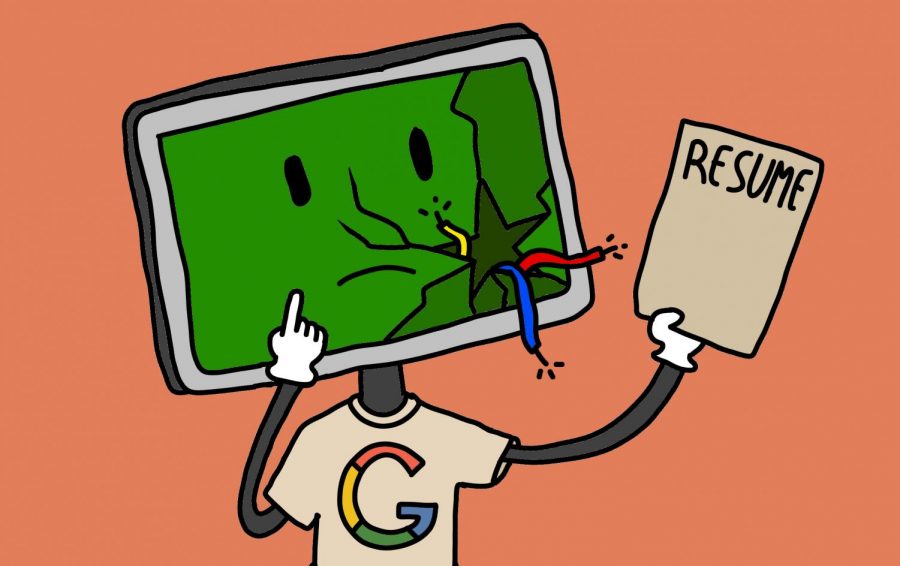The firing of Timnit Gebru shows the performative nature of American capitalism
March 17, 2021
Last December, Timnit Gebru was fired from her position as an artificial intelligence researcher at Google. The firing sparked a massive pushback from both within and outside the company, with many activists and Google employees voicing their concerns over the ethics of the situation. Google maintains that Gebru voluntarily stepped down from her position, even though Gebru denies the claim and argues that she was forced from the position. The source of the conflict centers around a paper Gebru co-authored that discussed harmful biases within Google’s AI practices. Additionally, Gebru claims that her criticisms of Google’s hiring practices also contributed to her termination. This issue is not merely an isolated incident of workplace drama; one could even argue that its significance applies to multiple different discussions currently occurring in American society, namely worker rights and the performative nature of the corporate world.
When George Floyd was killed by police officers in May 2020, Google’s CEO released an email to the company that explained their commitment to helping the Black community and supporting Black creators on platforms such as YouTube. Though these efforts appear noble in isolation, it becomes more problematic when one contextualizes this act with the firing of Gebru. Her comments and criticisms of Google are in no way opposed to the solidarity the company swore to after George Floyd’s death, making her termination all the more confusing. Why would Google allegedly terminate an employee when her criticisms align with the company’s newfound goals regarding social justice? Though there are a wide range of possible explanations, one cannot be blamed in thinking that Google’s initial statement was a public relations stunt aimed at generating positive media attention. It would be different if the company held a different belief and wanted to begin an open dialogue with Gebru, but her termination and the allegations surrounding its details show that such a dialogue was likely never in the picture.
Public relations is a powerful strategy that any company can use for genuinely good purposes. News and updates from a company can help customers and prospects better understand what their business model and philosophy is before beginning a partnership. However, when public relations becomes performative, it can lead to more harm than good, namely giving the public a false impression of the company’s beliefs. Google’s resistance to Gebru’s criticisms show that their dedication to the Black Lives Matter movement and the wider BIPOC community is superficial, only coming into existence to placate the public’s demands for a socially responsible corporate culture. Google is not the only company who engages in this behavior, as a large number of companies participate in similar public relations gimmicks without any real intention of enacting social change.
Gebru’s case also shows the need for a stronger workers’ rights movement in modern America. Our country has historically seen strong unions and labor rights movements that contributed to many of the benefits we enjoy today. If Gebru was terminated for her criticisms that intended to improve Google’s culture, it becomes clear that the employee-worker power dynamic is unfair — not only at Google, but in many other corporations across the country. She was not defaming the company, she was not giving competitors an upper hand, she was merely criticizing the company; a practice all Americans should be able to do without consequence.




















